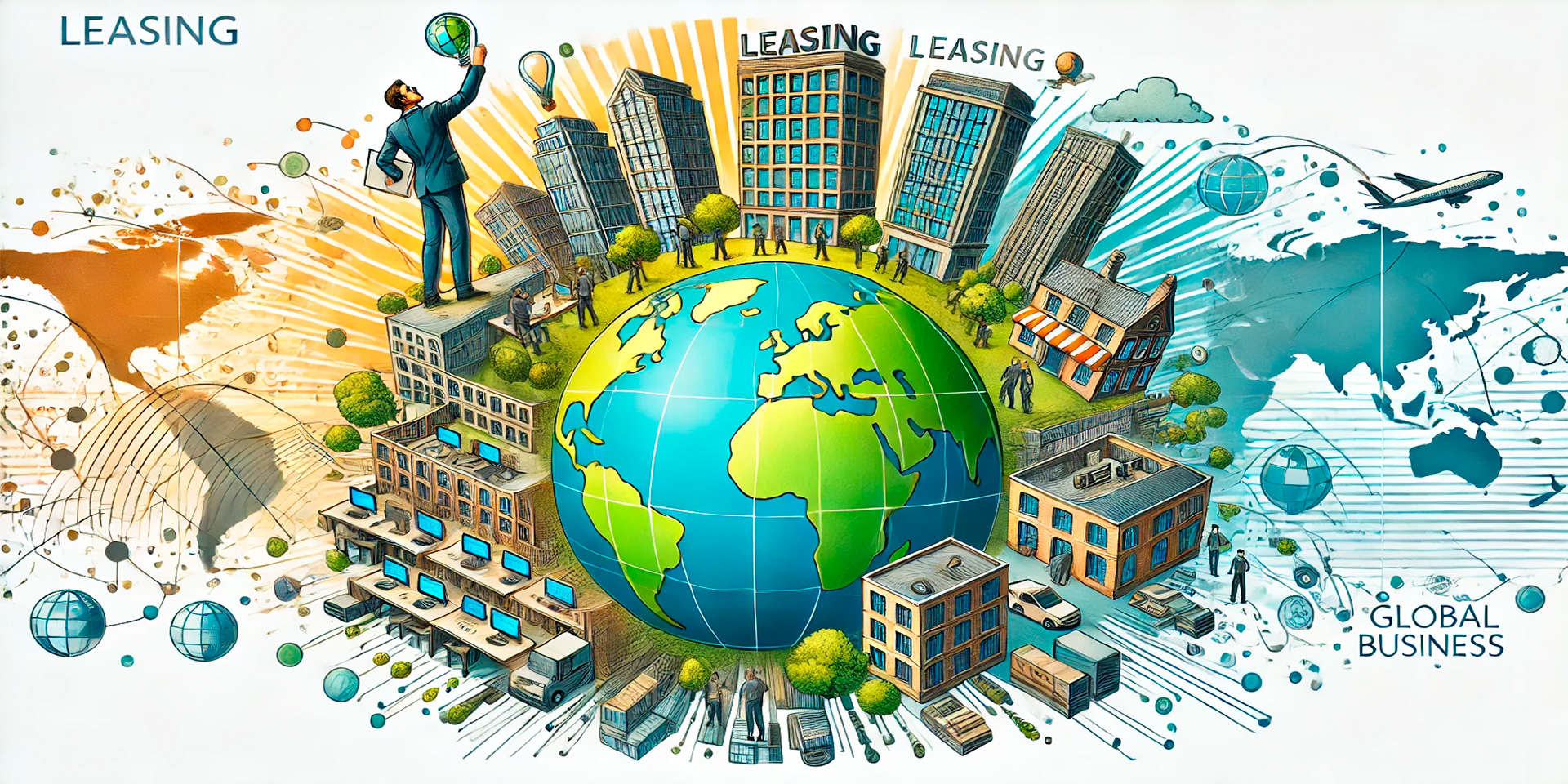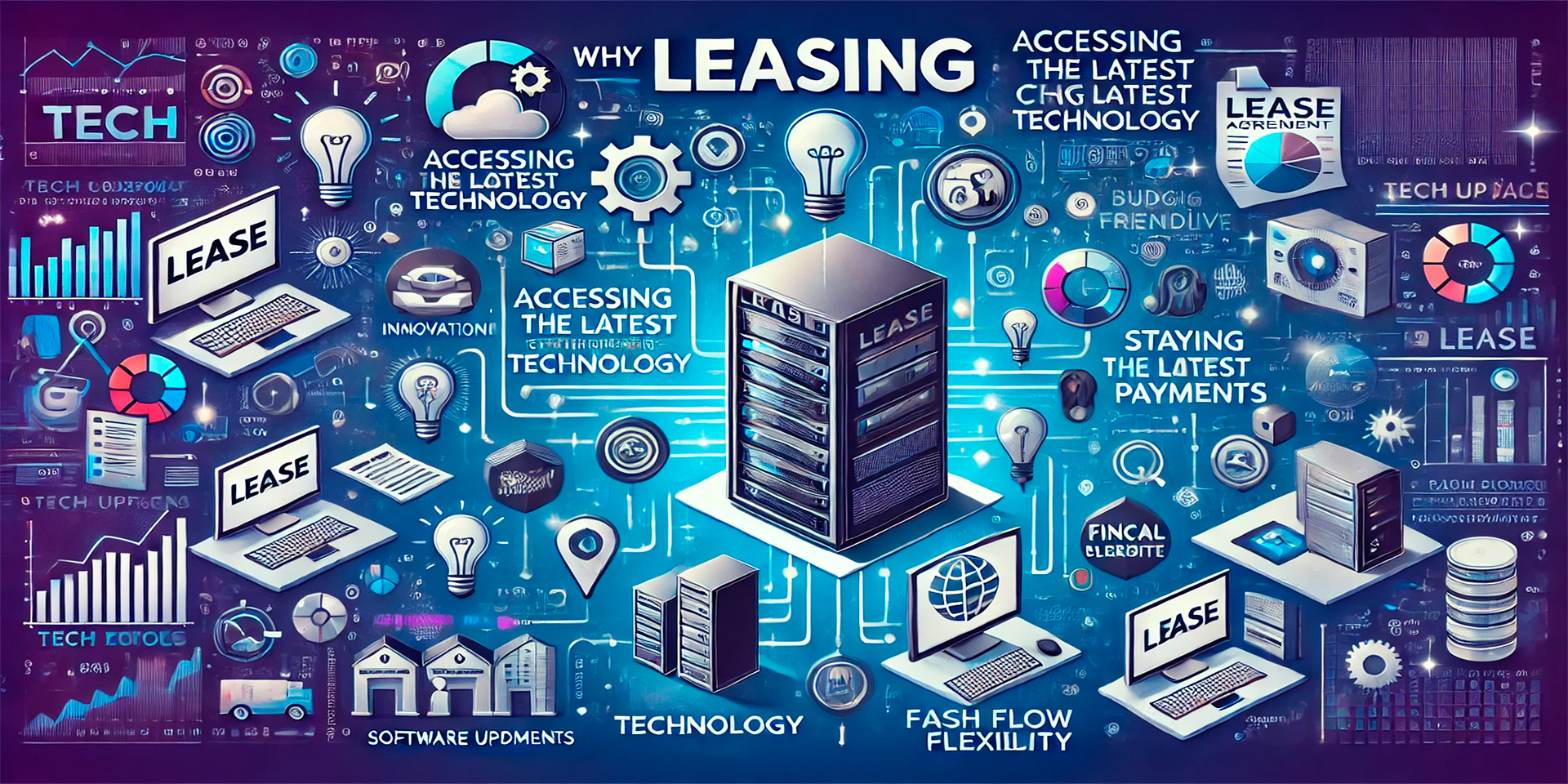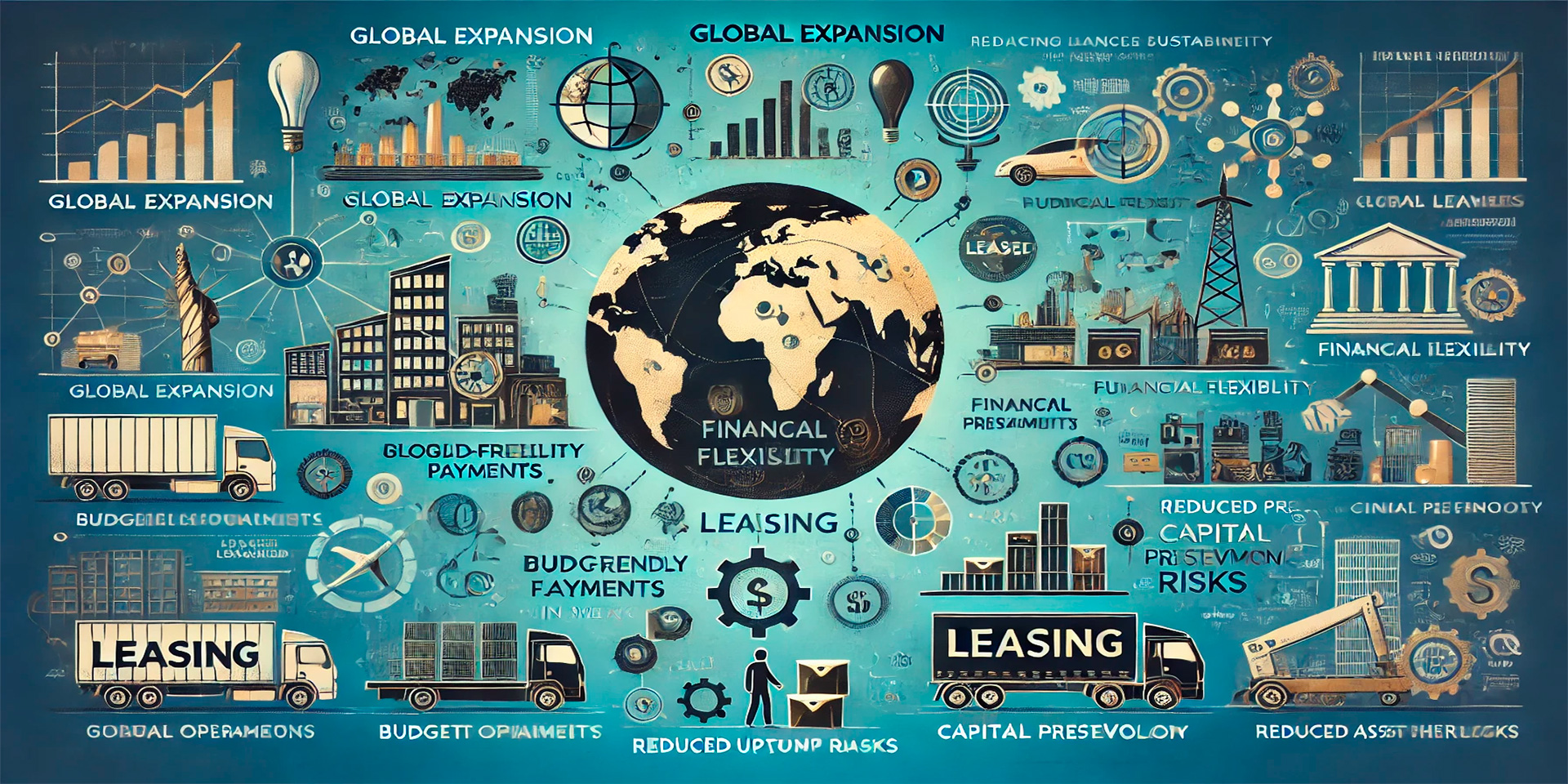
Global Expansion Made Easy: How Leasing Drives Business Growth
Global expansion presents exciting growth opportunities for businesses, but it also comes with significant financial challenges. From acquiring new equipment to establishing international operations, businesses need flexible financing solutions to scale efficiently. Leasing offers a strategic approach for companies looking to expand globally without the heavy financial burden of purchasing assets outright. By spreading costs over time and providing the ability to upgrade equipment as needed, leasing enables businesses to grow sustainably while maintaining operational agility.
As global markets evolve, leasing provides the financial flexibility necessary to adapt to new environments, making it a smart choice for companies focused on international growth.
Preserving Capital for Strategic Investments
One of the main advantages of leasing is the ability to preserve capital for other essential business investments. When expanding into new international markets, companies need to allocate resources for various operational needs, such as hiring talent, developing local marketing strategies, and navigating regulatory compliance. Purchasing equipment or property outright requires significant upfront capital, which can limit a business’s ability to invest in these critical areas.
Leasing allows companies to acquire the equipment and infrastructure they need without depleting their cash reserves. By turning large, one-time purchases into manageable monthly payments, businesses can maintain financial flexibility and ensure they have the resources necessary to support broader growth initiatives.
For example, a technology company expanding into a new region may choose to lease office space, servers, and hardware instead of purchasing them. This approach enables the company to use its capital for scaling operations, hiring local teams, or marketing its products in the new market, all while keeping cash flow steady.

Flexibility to Adapt in Changing Markets
Leasing provides the flexibility needed to adapt quickly to the unique challenges of international expansion. Different markets require different types of equipment, and demand can fluctuate based on local economic conditions or consumer preferences. Leasing allows businesses to adjust their asset base as needed, whether by scaling up to meet increased demand or downsizing in response to market shifts.
This flexibility is especially valuable for companies that need to remain agile in fast-paced industries. Leasing agreements can be structured to accommodate evolving needs, with options to upgrade, replace, or return equipment as business conditions change. This adaptability ensures that businesses can respond to opportunities and challenges without being locked into long-term ownership of assets that may no longer be suitable.
For example, a global retail company expanding into multiple countries may lease point-of-sale systems and inventory management technology to equip its stores. If one market grows faster than expected, the company can easily upgrade its technology through its lease agreement, ensuring that its operations stay efficient and competitive.
Access to the Latest Technology
In industries where technology evolves rapidly, owning equipment can quickly become a liability as newer, more advanced models enter the market. Leasing allows businesses to avoid the risk of technological obsolescence by providing access to the latest equipment without the financial burden of continuous purchases. This is particularly important for global companies that need to stay competitive in diverse and fast-moving markets.
Leasing agreements often include options to upgrade to newer models or more advanced equipment at the end of the lease term. This ensures that businesses can always use cutting-edge technology, improving efficiency, productivity, and overall performance.
For instance, a logistics company expanding its operations internationally might lease advanced tracking and fleet management systems. As new technology becomes available, the company can upgrade its equipment, ensuring that it continues to optimize its delivery and supply chain operations while maintaining a competitive edge in the global market.

Reducing Financial Risk in Uncertain Markets
International expansion comes with inherent risks, including political instability, fluctuating demand, and regulatory changes. Leasing helps businesses mitigate these risks by reducing the financial exposure associated with asset ownership. In volatile markets, owning expensive equipment or property can be risky, especially if the business needs to exit the market quickly or scale back operations.
Leasing offers a solution by allowing businesses to return equipment or terminate leases at the end of the contract period, without the complexities of selling owned assets. This reduces the financial burden of adjusting to market changes and provides businesses with greater flexibility to pivot their strategies as needed.
For global companies entering emerging markets, where economic and political conditions can be unpredictable, leasing equipment minimizes the risk of making long-term investments that may not yield the expected return.
Improving Cash Flow Management
Maintaining strong cash flow is crucial for businesses during periods of global expansion. Leasing offers a way to improve cash flow management by turning large capital expenditures into predictable, manageable payments. This consistency makes it easier for businesses to budget and plan their finances, ensuring they can meet their loan payments, payroll, and other operational expenses while investing in growth.
Leasing agreements often come with fixed payments, which provide stability in managing cash flow. With these predictable expenses, businesses can better allocate their resources and make informed financial decisions, whether that involves expanding into new markets, launching new products, or acquiring new customers.
Tax Advantages of Leasing for Global Businesses
Leasing can also provide significant tax advantages for global businesses. In many countries, lease payments are treated as operating expenses, which means they can be deducted from taxable income. This reduces a company’s overall tax liability, making leasing an even more attractive option compared to purchasing, where only depreciation and interest expenses are typically deductible.
By working with tax advisors to understand the local tax regulations in each country, global companies can maximize the financial benefits of leasing and improve their cash flow. These tax advantages make leasing a cost-effective solution for businesses looking to expand internationally.
Maintenance and Support Included
Many leasing agreements include maintenance and support services, further reducing the operational burden on global businesses. Instead of managing repairs, upgrades, or replacements in-house, businesses can rely on the leasing provider to handle these tasks. This ensures that equipment is always in top working condition, minimizing downtime and operational disruptions.
For global businesses, having maintenance included in leasing agreements is particularly valuable, as it ensures that international operations run smoothly without the added complexity of managing repairs across multiple regions. This arrangement allows businesses to focus on their core operations while leaving the responsibility of equipment upkeep to the leasing provider.
Conclusion
Leasing is a smart choice for global businesses looking to expand their operations while maintaining financial flexibility. By preserving capital, reducing financial risk, and providing access to the latest technology, leasing enables companies to grow efficiently in international markets. With added benefits such as tax advantages, improved cash flow, and included maintenance, leasing offers a powerful solution for businesses seeking to scale their global presence without the heavy financial burden of asset ownership.



